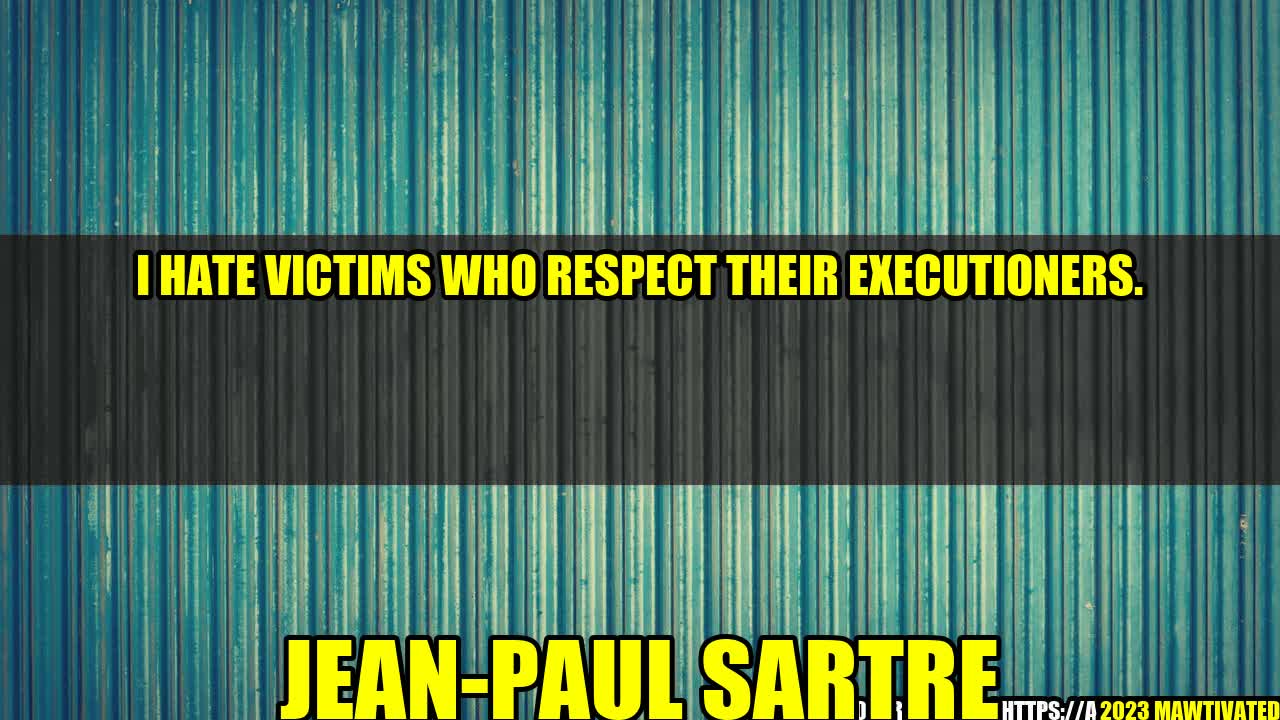The Power of Refusing to Be a Victim

As a child, I was always taught to be polite and respectful to others. While these are important qualities to have, there comes a point where being too polite and submissive can do more harm than good.
I vividly remember a time when I was walking home from school and a group of boys started following me, taunting me with insults and rude remarks. For a moment, I felt scared and vulnerable, but then I remembered something my mother had told me: “Never let anyone make you feel small. Stand up for yourself, even if it’s scary.”
So I turned around, looked the boys straight in the eye, and told them that their behavior was unacceptable and that I wouldn’t tolerate it. To my surprise, they backed off and left me alone. In that moment, I learned an important lesson: when you refuse to be a victim, you take back your power.
This idea is perfectly encapsulated in the famous quote by Jean-Paul Sartre: “I hate victims who respect their executioners.” It’s a powerful statement that speaks to the idea that by showing deference to those who seek to harm us, we are only reinforcing their power over us.
The Importance of Standing Up for Yourself
There are many reasons why we might feel compelled to be submissive or passive in the face of mistreatment. Maybe we’re worried about making the situation worse, or we don’t want to come across as confrontational or difficult. But by doing so, we are essentially allowing the person who is mistreating us to continue doing so with impunity.
Here are some reasons why it’s important to stand up for yourself:
- You assert your own worth. By refusing to be a doormat, you send a message that your needs and boundaries matter.
- You set a precedent. When people see that you won’t tolerate mistreatment, they are less likely to try it themselves.
- You improve your mental and emotional health. Being mistreated can take a serious toll on our mental and emotional well-being. Standing up for yourself can help you reclaim your sense of agency and empowerment.
Examples of Refusing to Be a Victim
There are countless examples throughout history of people who refused to back down in the face of oppression or mistreatment. Here are just a few:
“I am in blood stepped in so far that should I wade no more, returning were as tedious as go o’er.”
Though fictional, Lady Macbeth’s words echo a common sentiment among those who have been pushed to their limit. Sometimes, there comes a point where going back is no longer an option if we want to maintain our self-respect.
“I refuse to accept the view that mankind is so tragically bound to the starless midnight of racism and war that the bright daybreak of peace and brotherhood can never become a reality.”
Dr. King’s words inspire us to believe that positive change is possible, even in the face of seemingly insurmountable adversity. By refusing to give up and continuing to fight for what’s right, we can help make the world a better place.
Conclusion
In conclusion, it’s important to remember that there is power in refusing to be a victim. By standing up for ourselves and asserting our own worth, we can create a better future for ourselves and for those around us.
To summarize, here are three key takeaways:
- Don’t be afraid to stand up for yourself when mistreated.
- Set a precedent for others to follow by showing that you won’t tolerate bad behavior.
- Remember that you are worth fighting for, and never let anyone make you feel otherwise.

Curated by Team Akash.Mittal.Blog
Share on Twitter
Share on LinkedIn